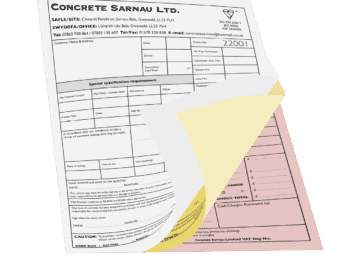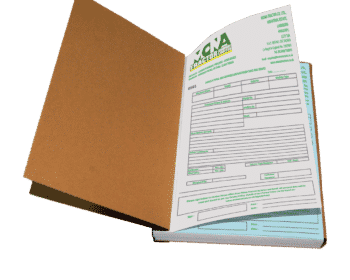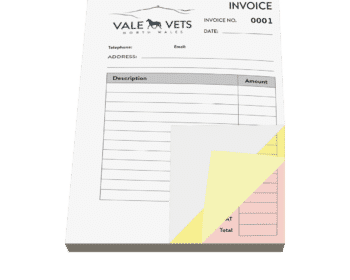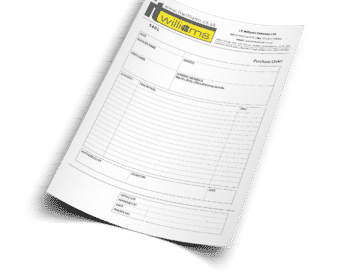
Business Form Printing North Wales
Bespoke design. Add your logo and contact details for a smart professional look. Order as few as two books or pads. Fast delivery.
Why use Printed Business Forms?
If you are looking for a way to record your business transactions on the move, our printed business forms are the perfect solution.
- No passwords needed
- Limitless battery life
- And no loss of signal!
Whilst many business transactions are handled electronically printed business forms are still hugely popular.
They are versatile, easy to use and a cost-effective solution to record important everyday transactions such as Invoices, Deliveries, Receipts, Waste Transfer Notes, Hire Sheets, Purchase Orders and so much more.
Multi-part forms are usually printed on carbonless or NCR paper (see below) whereas single part forms are printed on plain paper.
Because they are made to your bespoke requirements it’s easy to have your business form printing personalised with all your contact details and … your logo for a smart professional finish.
Please call us now to discuss your requirements.
Typical uses for Business Form printing. Here are some of the items we print every day. Listing all of them is impossible!
- Authorisation Pads
- Butchers’ Books
- Certificates of Compliance
- Consent Forms
- Contracts
- Conveyance Notes
- Day Work Sheet Books
- Defect Report Books
- Delivery Notes
- Fee Agreement pads
- Hazardous Waste pads
- Hire Agreements
- Invoices
- Licences
- Maintenance Records
- Order Books
- Permits
- Plant Test forms
- Purchase Orders
- Receipts
- Statements
- Quotations
- Requisition Forms
- Rescue/Recovery Forms
- Service books
- Waste Transfer Notes
- Workshop Repair pads
Let’s have a no-obligation chat and help guide you through all the options.
Just leave us your name and number and a convenient time to call back and we’ll be in touch.

NCR what does it mean?
NCR means No Carbon Required and is now the go-to standard paper for use in multi-part business forms.
It was invented in the early 1950s by two chemists at the National Cash Register Company, Lowell Schleicher and Barry Green but the term NCR is now synonymous with carbonless paper.
Each sheet has a special coating that allows your handwritten message to be transferred onto the sheet below.
The top sheet is coated on the reverse and the bottom sheet is coated on the face.
For triplicate and quadruplicate forms, the middle sheet(s) are coated on both sides but any handwritten message recorded by you is only transferred to the surface of the sheet below.
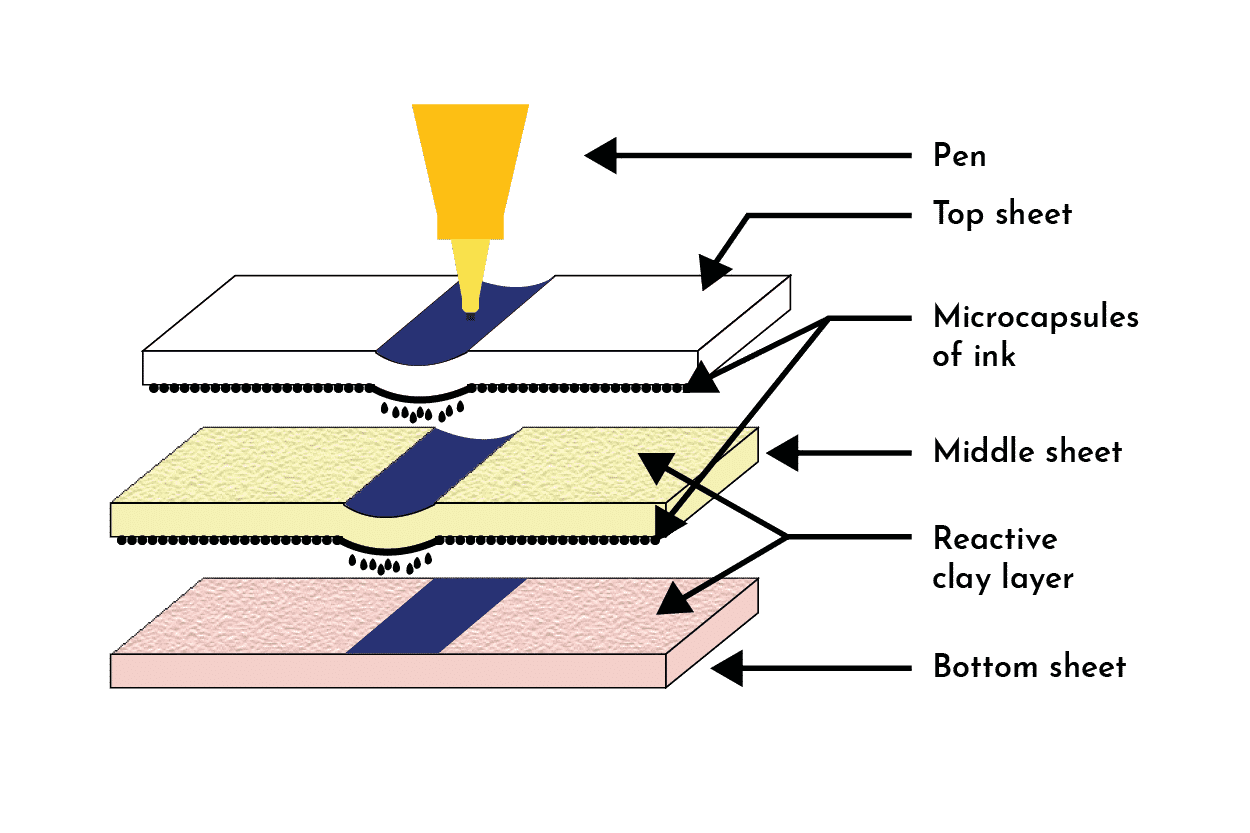
Write-protect slips
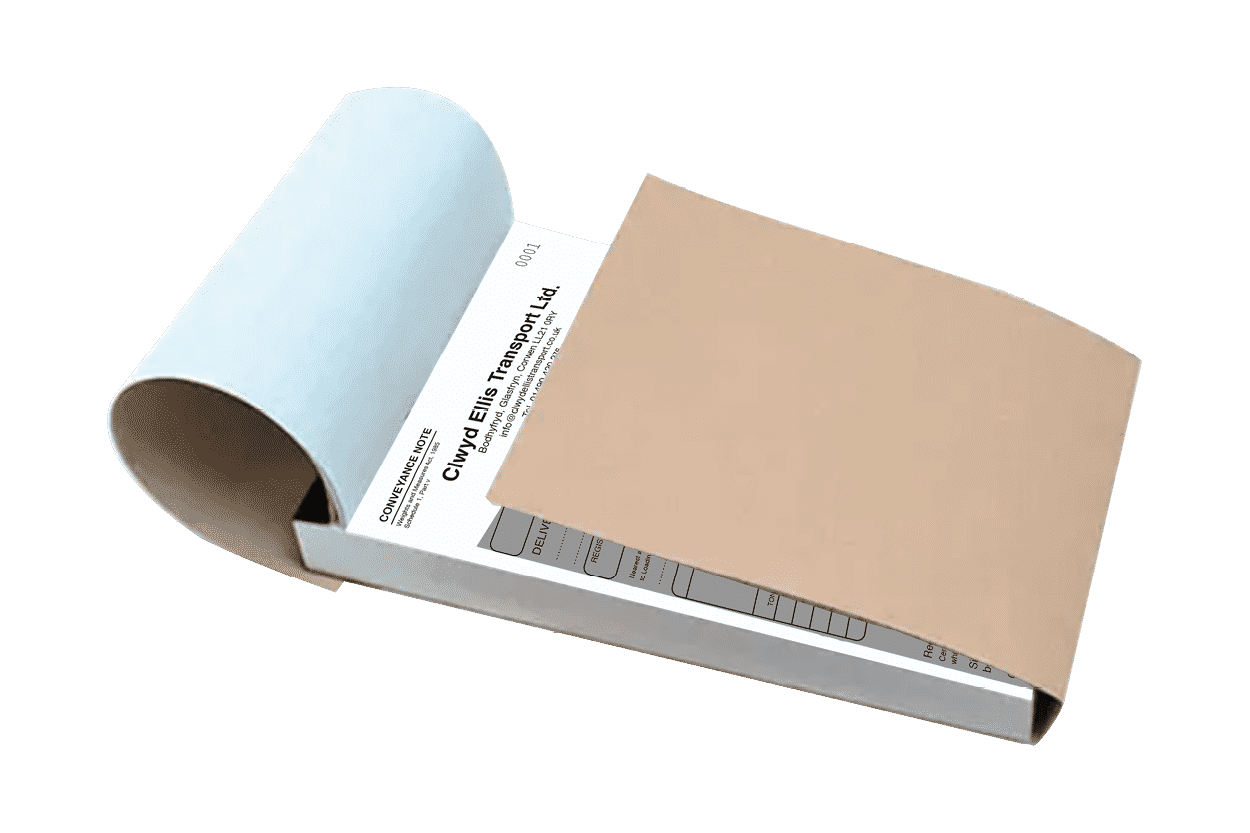
NCR books and pads are usually bound in bundles of 50 multi-part Sets (see finishing options below) so it is important that the details recorded on one form are not transferred to the next Set.
To prevent this from happening, we provide a sheet of card which is inserted underneath the multi-part Set in use. Alternatively, wraparound covers can be requested and these perform the same function.
A 200gsm sheet of card is usually sufficient to prevent any spoilage of the Set underneath.
Finishing options
There are four common binding or finishing types and these are:
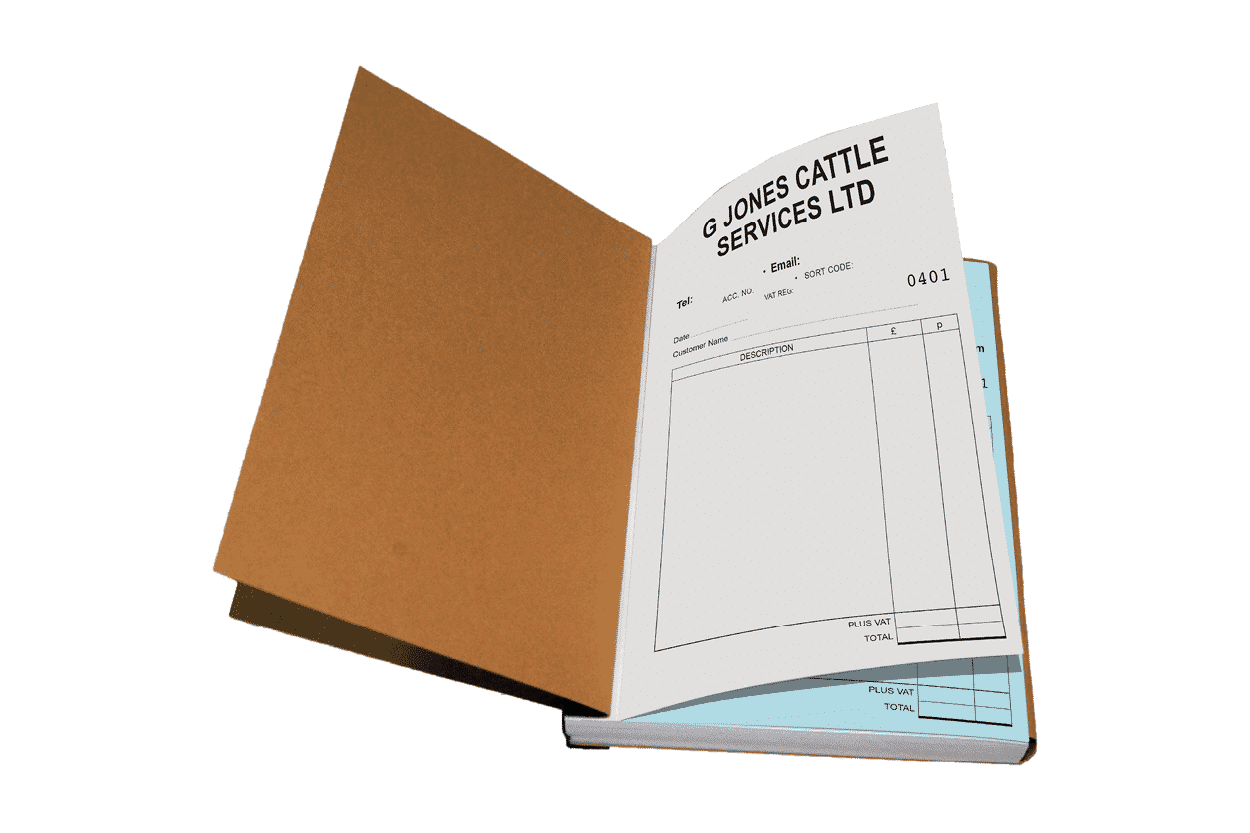
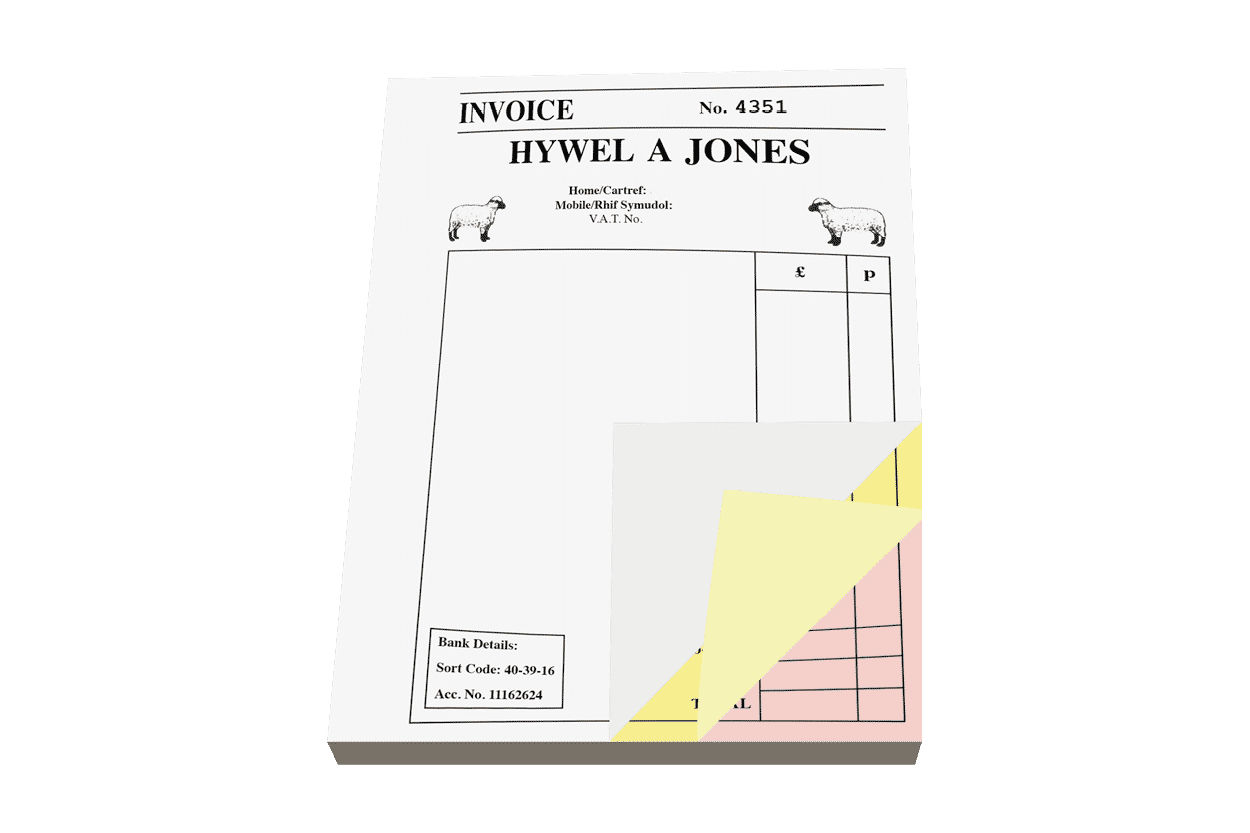
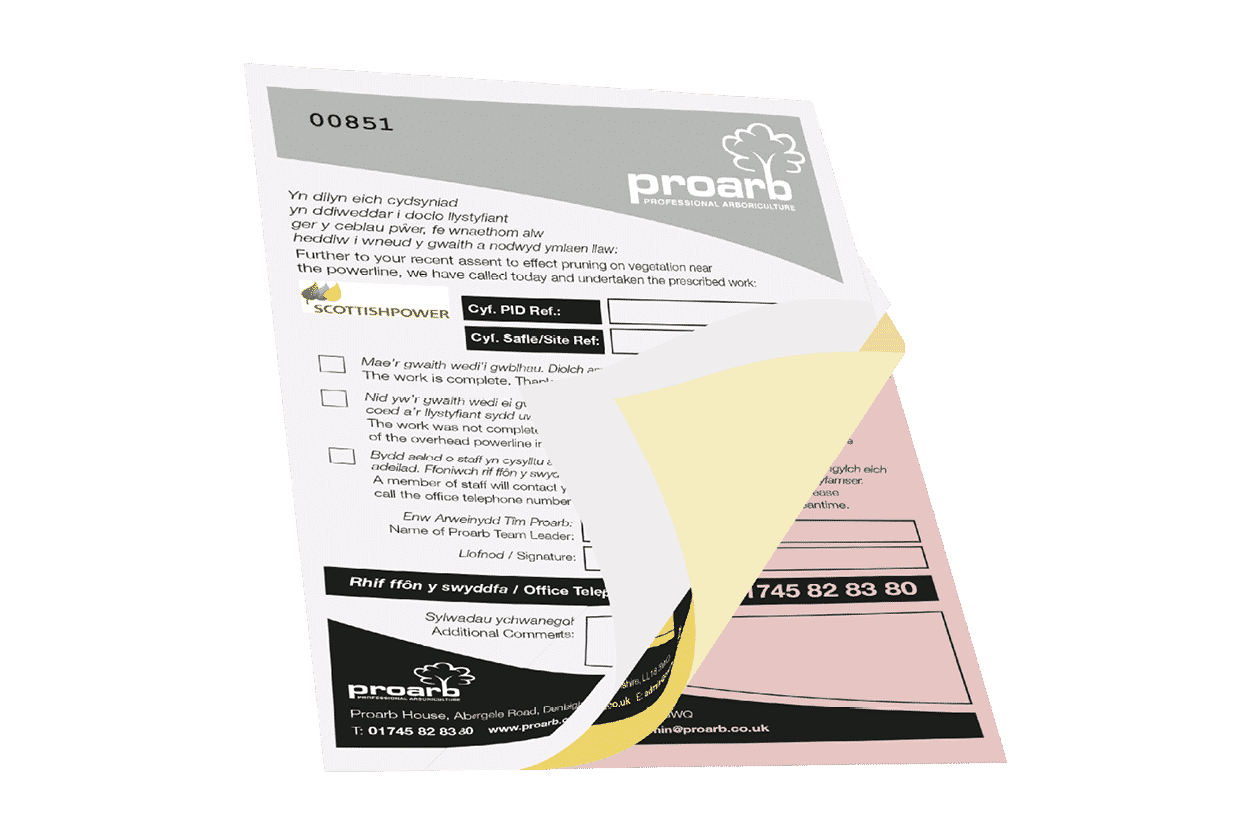
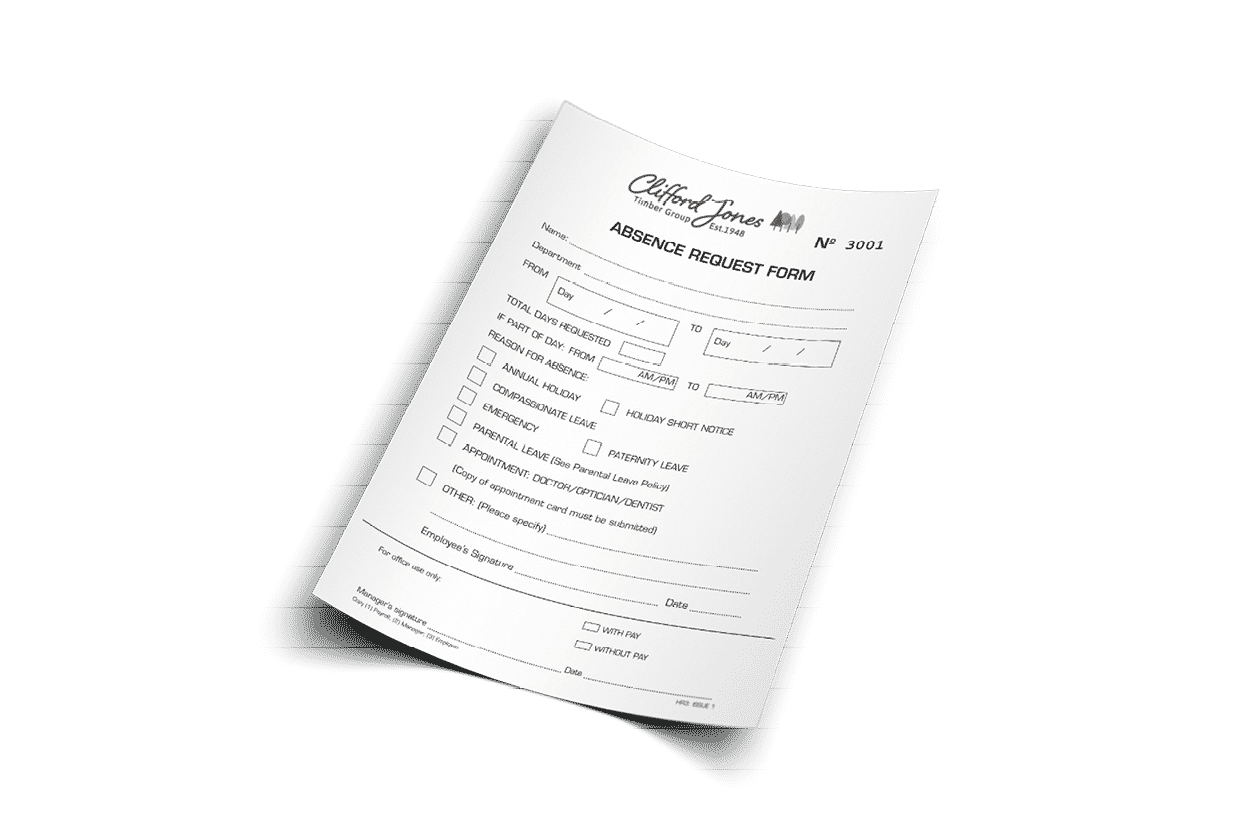
Books |
Pads |
Sets |
Single Sheets |
| Usually bound in books of 50 Sets with a perforated top sheet. The bottom sheet isn’t usually perforated and remains fixed in the book. In 3-part or 4-part Sets, the middle sheets are also perforated. | Just like NCR books, NCR pads are usually glued in blocks of 50 multi-part Sets. However, the sheets are not perforated, and any sheet can be removed from the pad. | The term “Sets” refers to the number of sheets in the multi-part Set. Duplicate or 2-part Sets have a top and a bottom copy whereas triplicate or 3-part Sets comprise a top, middle and bottom sheet. | As the name suggests, single-sheet business forms are printed on a bond or wove paper and supplied loose and can be numbered just like their multi-part siblings. |
Typically, books and pads will be bound with a thick grey backing board for extra rigidity. NCR Sets are supplied collated and glued in multi-part Sets.
Numbering
Keeping track of your transactions is vital so we number your printed business forms consecutively. Usually in black and one position on the sheet unless otherwise requested.
Jargon buster: sometimes you will see references to Numbered TLHC, or the like, which simply means that the sequential numbering will appear in the Top Left-Hand Corner of your business form.
Typically, the number sequence starts with the number 1 and can include leading zeros if you so wish.
Very occasionally we are asked to start numbering from something other than 1, 51, 101, 151 etc – in these circumstances we recommend that the first book or pad contains fewer Sets allowing the next book or pad to reset to start at 51, 101, 1001 etc.
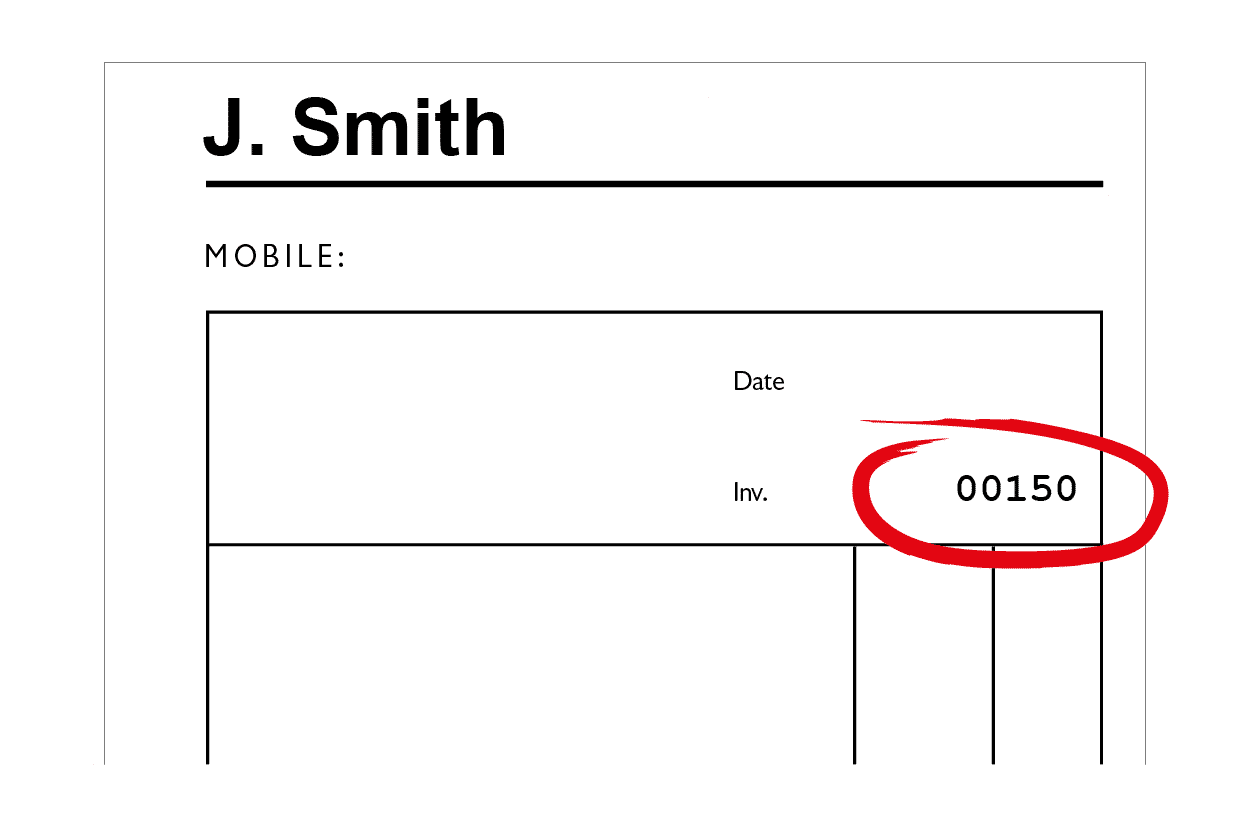
Precursors
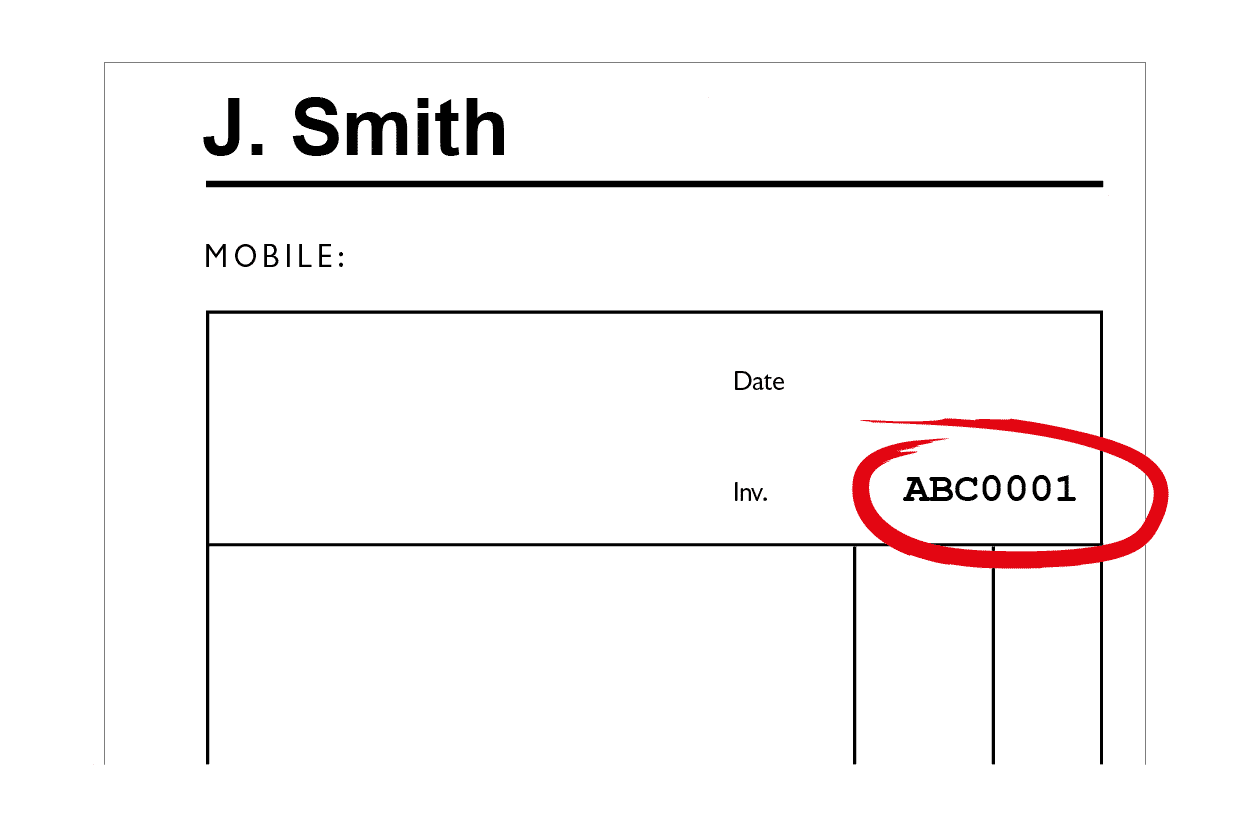
Sometimes, it can be helpful if the numbering sequence has a precursor or other identifier which allows users to identify different branches of the business, for example.
As long as the identifier is static (it doesn’t change), there is no extra charge because it is printed as part of the main form.
Paper colours
NCR paper colours range from white, yellow, pink, blue and green.
White is usually reserved for the top sheet and green for the bottom sheet leaving the remaining colours for the middle sheet or sheets.
However, it is possible to use a coloured top sheet and any colour other than green for the bottom sheet although it is slightly more costly to do so.
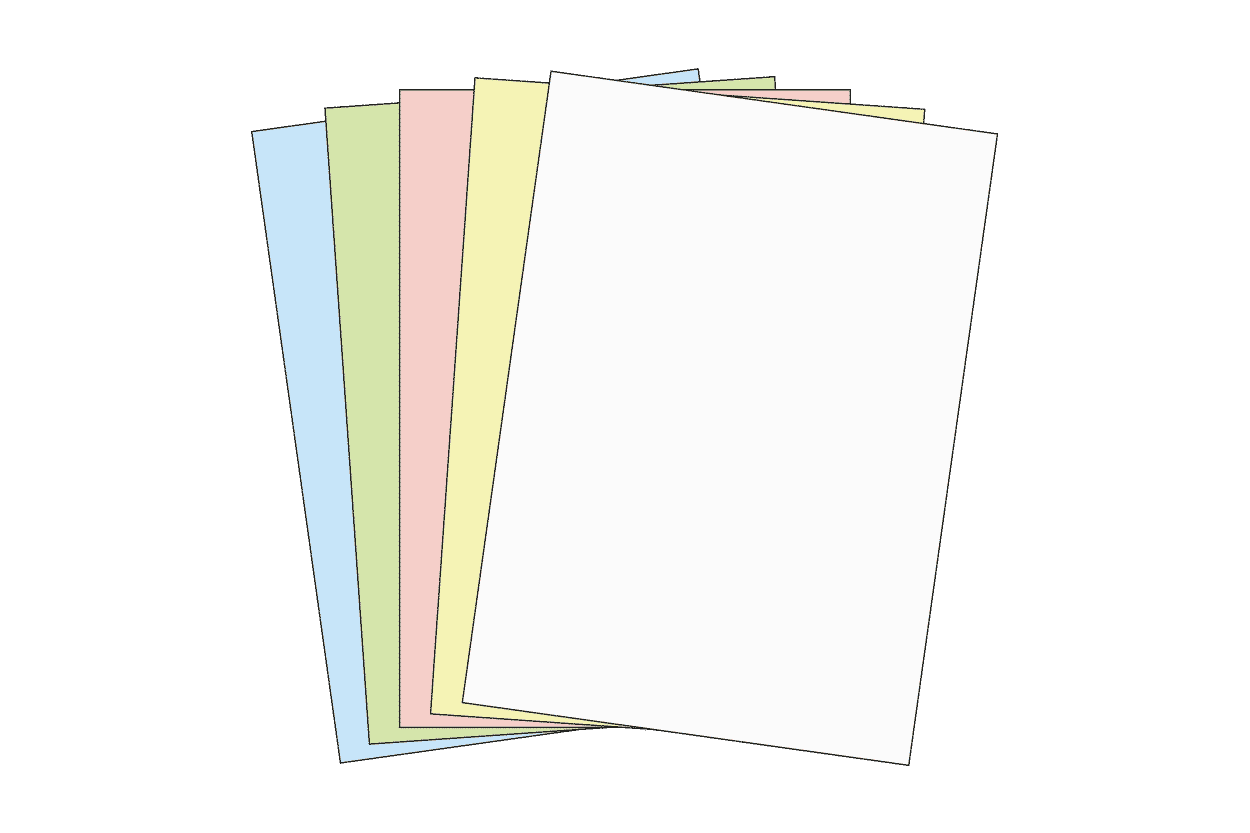
Ink colours
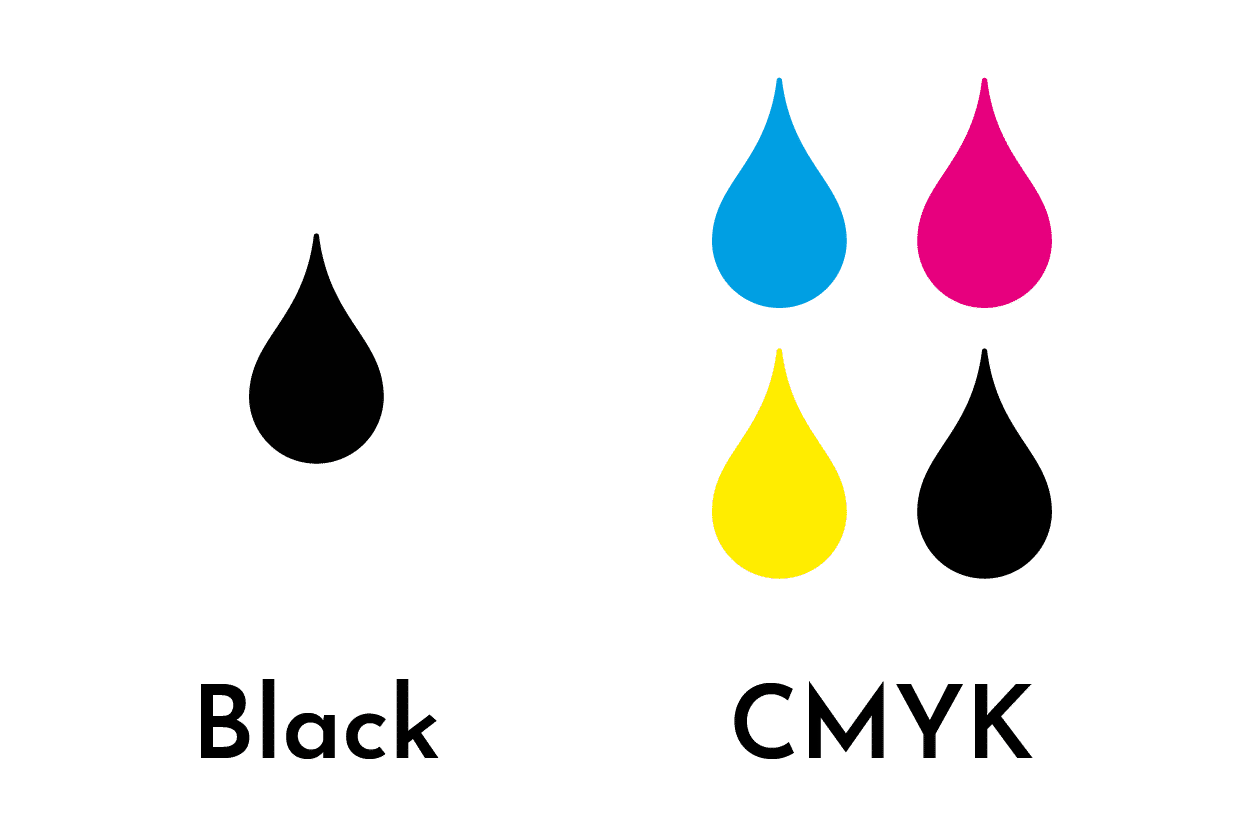
The most cost-effective ink colour is black but full-colour business form printing is also possible.
It is also possible to have printing on the reverse of the sheet, too. Typically, Terms & Conditions would be printed on the reverse of the customer copy but not on office copies retained by you.
Where T&Cs are required, we recommend they are printed in mid-grey. This enables them to be read without showing through on the sheet and distracting the customer from the all-important information on the front of the form.
Let’s have a quick chat to guide you through all the options available.
Just leave us your name and number and a convenient time to call back and we’ll be in touch.

Printed covers
Business Form Printing North Wales
NCR books and pads are commonly bound with plain buff covers. However, it is perfectly possible to have covers of a different colour, especially if you want different types of forms bound in different colours for easy identification. Blue for invoice books and red for delivery notes, for example.
Another option is to have printed covers, something we do regularly where customers wish to identify machinery records with a plant number or identifier on the cover.
Printed covers can also be utilised for User Instructions.
If forms are complex, we can print user instructions on the inside of the front cover. This ensures consistent and accurate recording and … ease of use by the member of staff completing the documentation.
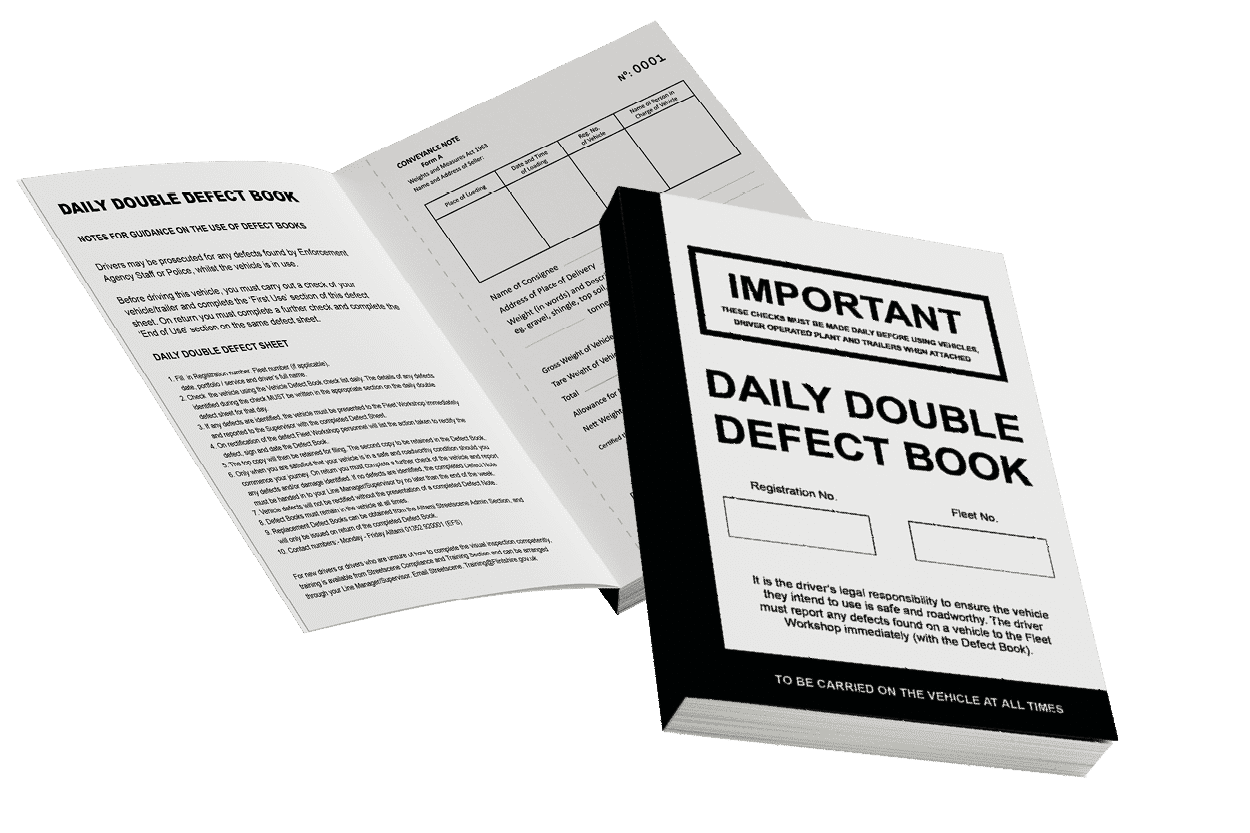
Easy reordering
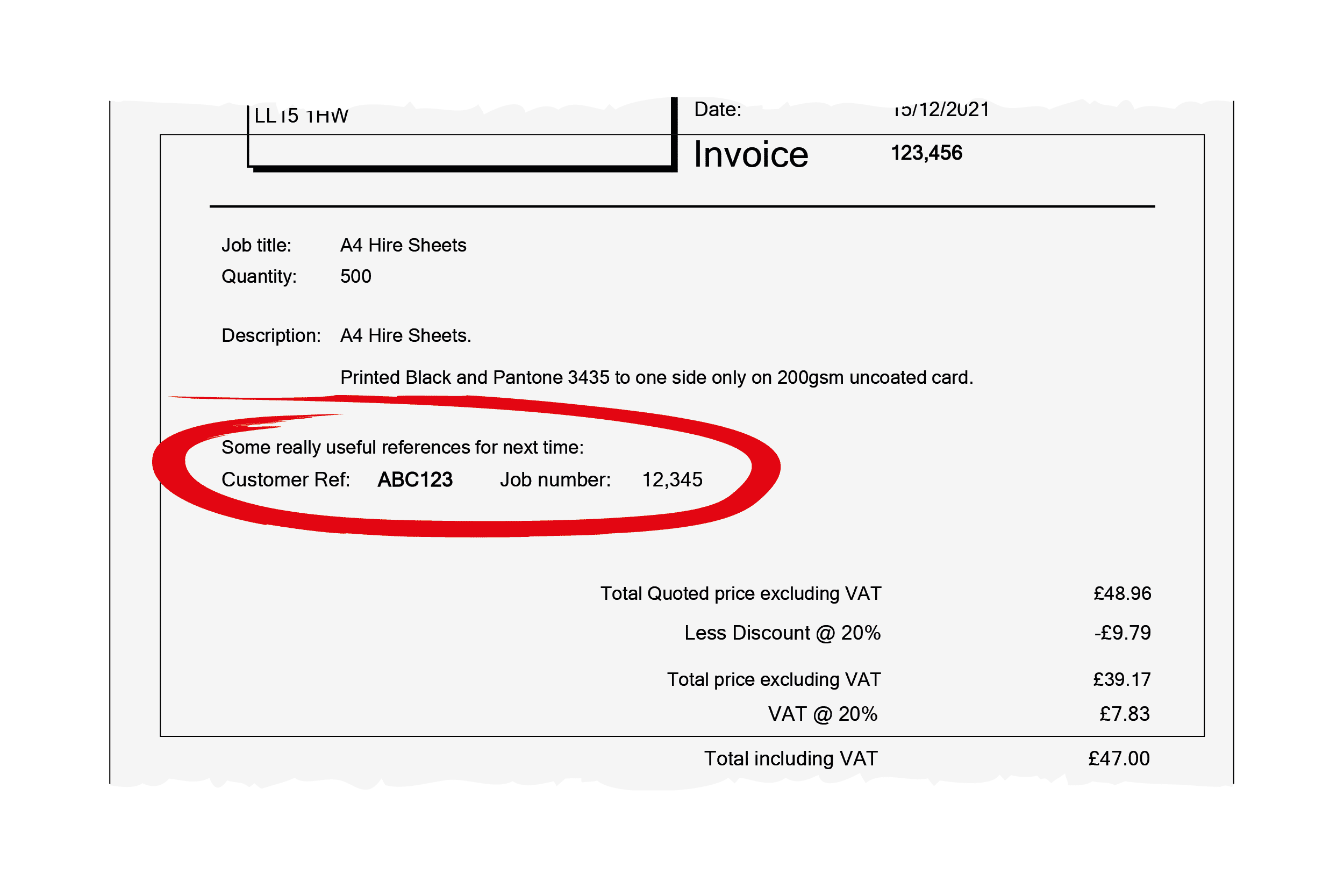
We retain an electronic copy of your Artwork and your printing instructions indefinitely. Our records will retain the full printing instructions and product specifications for future use.
The unique job record will be detailed on your invoice so please keep it in a safe place ready for when you need some more.
These job record numbers are unique, so it is important to use only the reference number from your most recent order.
Older records will carry historic information which may be out of date and will almost certainly detail an inaccurate numbering sequence. And, possibly, previous Artwork versions too.
Butchers Books
These are usually A4 in size and carry 6 or 8 receipts to view and can be used as invoices or receipts.
Butchers’ books are unusual in the respect that the numbering sequence runs across the page before continuing the sequence on the next Set.
This is because there are six or eight separate forms on each page – each carrying a unique and sequential number.
Other than that, the printing process is the same and the same NCR paper is used as for other standard NCR books and pas.
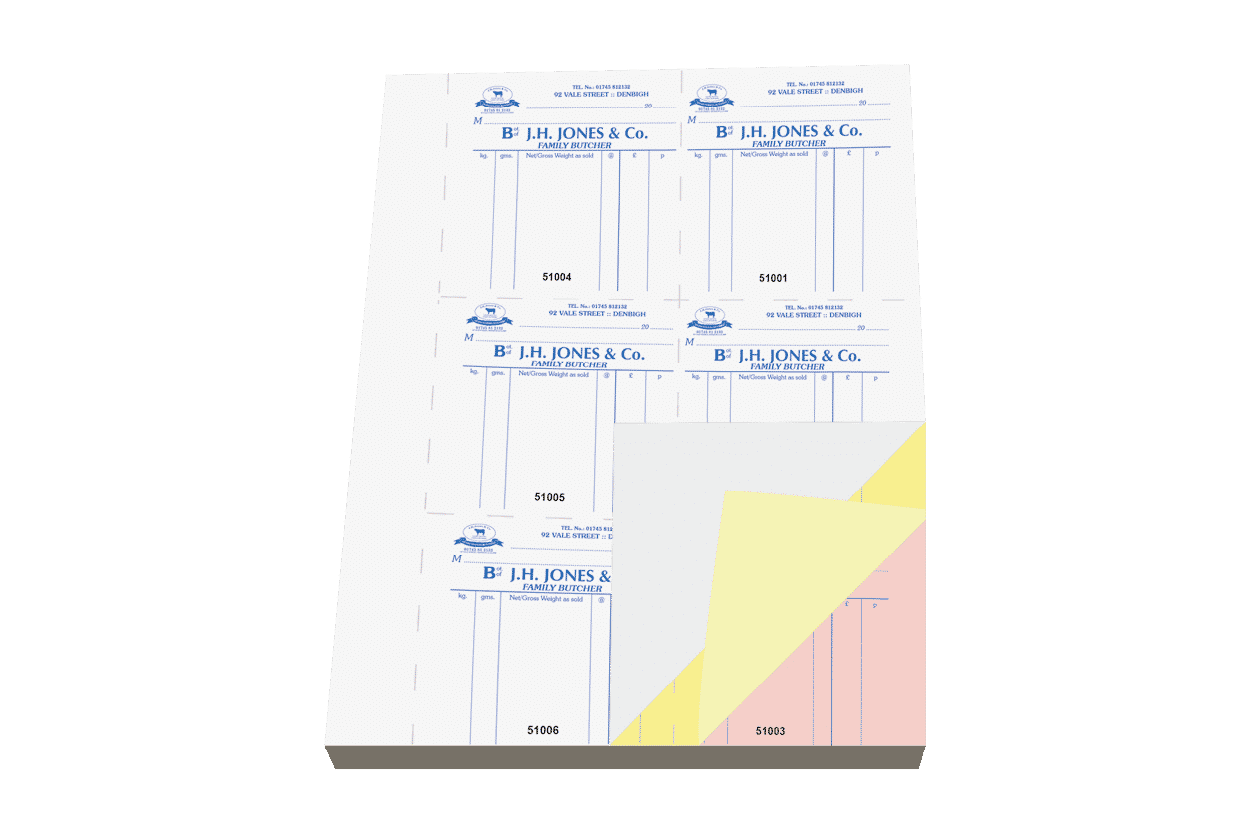
Receipt Books with multiple forms to view
These are very similar to Butchers’ Books and used in several applications where electronic record-keeping is not practical or cost-effective.

